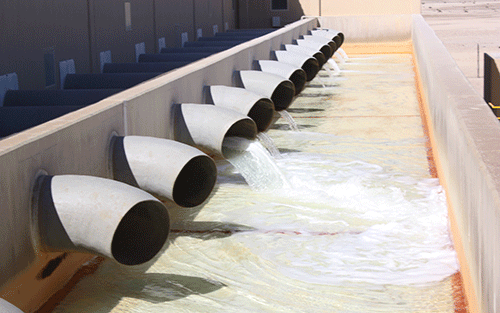SWAKOPMUND – The highly anticipated second desalination plant is poised to be a major game changer, not only for the arid Erongo region, which is constantly grappling with water shortages, but also for the country.
This optimistic outlook was shared by the Erongo governor Neville Andre, during his state of the region address held in Swakopmund yesterday.
He told regional and local authority councillors as well as residents of the region that significant progress has been made in the development of the second desalination plant.
According to the governor, this plant will offer a viable solution to the water challenges faced by the country.
“The necessary abstraction permits have already been obtained, and the agriculture ministry is working diligently to expedite this massive development project, aiming to make it a reality within the shortest possible time. This project will have far-reaching benefits for the entire country and its major industries,” he said.
The project’s feasibility study has already been discussed, and estimates suggest that it could cost over N$3.5 billion. The proposed project will be implemented in phases under a public-private partnership model, encompassing funding, design, build, operation, and transfer, to be completed within two to five years.
Cabinet already approved a proposal for NamWater to seek loans to finance the construction of the plant that will provide water to the coastal and central regions of the country, including Windhoek.
Additionally, the government is considering a partnership with Botswana to supply water to the drought-prone neighbouring country.
Plans for the second desalination plant have been in development for years, following the government’s decision in 2016 not to purchase the Orano desalination plant in Wlotzkasbaken due to its high cost.
At that time, the plant was offered to the government by Areva for N$3 billion, with the understanding that such a utility should not be privately owned.
The current desalination plant supplies nearly 50% of the region’s freshwater consumption, including several mines such as Rossing Uranium. However, the rising demand for water has compelled the government to take this bold step forward and construct a second plant.
Agriculture minister Calle Schlettwein previously stated that the new plant will be developed through a public-private partnership, leveraging private capital and operational capacity. NamWater will retain ownership of the plant.
Rural supply
The governor also indicated that there is progress in securing a reliable and cost-effective water supply for the Omatjete area in the Daures constituency.
“The recent commissioning of the Ozondati pipeline, costing N$17 million through the Erongo Regional Council, is a significant achievement. Furthermore, with funding from the Environmental Investment Fund (EIF), three water purification plants have been established in the Spitzkoppe area. These plants will provide clean drinking water to communities in the region, which have long suffered from saline and alkaline water,” he said.
The governor also told the gathering that the agriculture ministry through its directorate of rural water supply has invested in drilling eight boreholes in Otjiwapeke, Ovihitua, Grens-Post, Heinz Post, Ou Bron Post, Anigab, and Otjikakaneno. Out of these, only three boreholes – Otjiwapeke, Heinz Post, and Anigab – have yielded successful results. Additionally, a tanker truck has been procured through the prime minister’s office, easing the delivery of water to the drought-stricken areas of the region.



